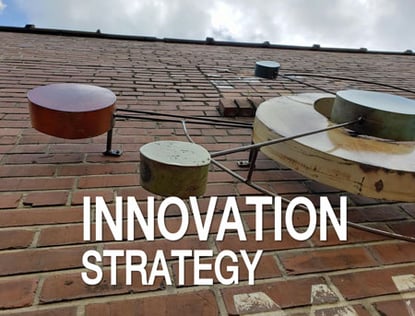Let me ask a question. It’s a tough question, but you can answer to yourself. Is your organization afraid to fail as you try to innovate?
If your organization does fear failure, you are missing innovative opportunities and risking crippling stagnation.
Embracing failure could be exactly the secret to uncovering the innovation windfall you need to succeed today and into the future.
It’s a basic premise of innovation that it requires risk-taking, experimentation, and a willingness to stumble today in the pursuit of cool, future breakthroughs. Failure is inevitable. Innovation is a numbers game, and the overwhelming majority of tries won’t reach the market. Failing your way to innovation, though, can provide learning, motivation, resilience, and mindsets that will lead an organization forward.
Four Benefits of Failing While Innovating

I’m not a big fan of failure, but you aren’t going to succeed with 100% of the innovations you attempt. If you are, then you aren’t innovating; you’re just implementing sure things, and that’s not innovation.
If failing scares you, think about these four benefits of failing as your organization innovates:
1. Expanding Your Organization’s Powerful Insights
When organizations embrace failure as part of the innovation process, they have an amazing opportunity to expand their organizational insights, bolster their knowledge of what doesn’t work, and improve future decision making skills. New insights lead to future innovation and improved operational processes.
2. Catalyzing Future Innovation
Innovation benefits from more thinking directed at strategic opportunities. Launching a greater number of targeted concepts, even if they only lead to learning, creates valuable opportunities to try, learn, and fuel further ideas and innovations.
3. Building Resilience
When things don't go as planned, organizations must adapt and learn to bounce back stronger. An innovation-oriented culture can develop its resilience through early stage challenges instead of with high-stakes, market-visible setbacks.
4. Fostering a Growth Mindset
Challenges should be seen as opportunities to develop and advance learning, processes, and optimum practices. Acknowledging that failure is one aspect of moving forward is part of fostering a growth mindset where taking on big, uncertain opportunities leads to breakthrough results.
Embracing Failure as Vital for Innovation
Innovation requires risk-taking, experimentation, and an appetite for pursuing new, uncertain aspirations while seeking major successes. Failure is an inevitable aspect of the innovation process. It presents, though, valuable experiences to glean insights that provide the groundwork for further rounds of more impactful innovations. – Mike Brown



